
Thematic Network Association



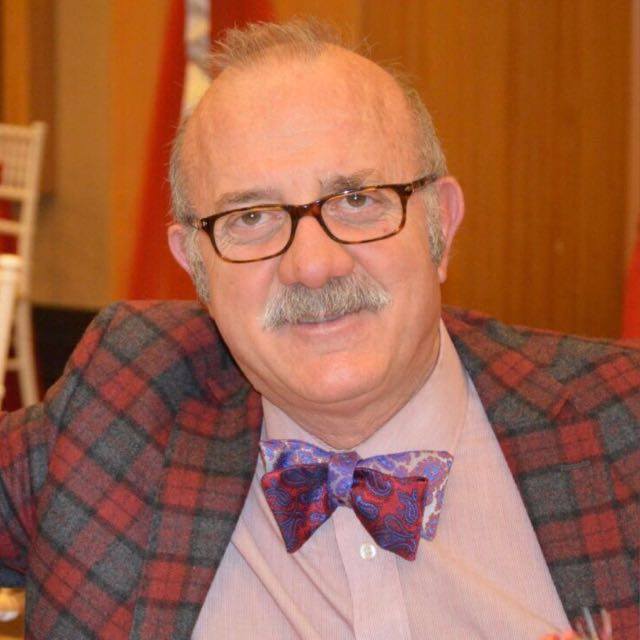 |
Munis DündarPRESIDENTHe took an undergraduate degree at Erciyes University, Faculty of Medicine in 1985. He made Ph.D. on Medical Genetics at Duncan Guthrie Institute of Medical Genetics, University of Glasgow/Scotland in 1994 and got Professor Title in 2003. He is founder and head of Medical Genetics Department at Erciyes University and he has been currently carrying out various administrative tasks since 1996. He took part as Project Coordinator and Assistant Investigator in many research projects and many prepared articles out of them have been publishing in international journals since 1995. He is a lecturer at European University Consortium, Job Creation Oriented Biotechnology for first-level degree and master program students, since 2006. |
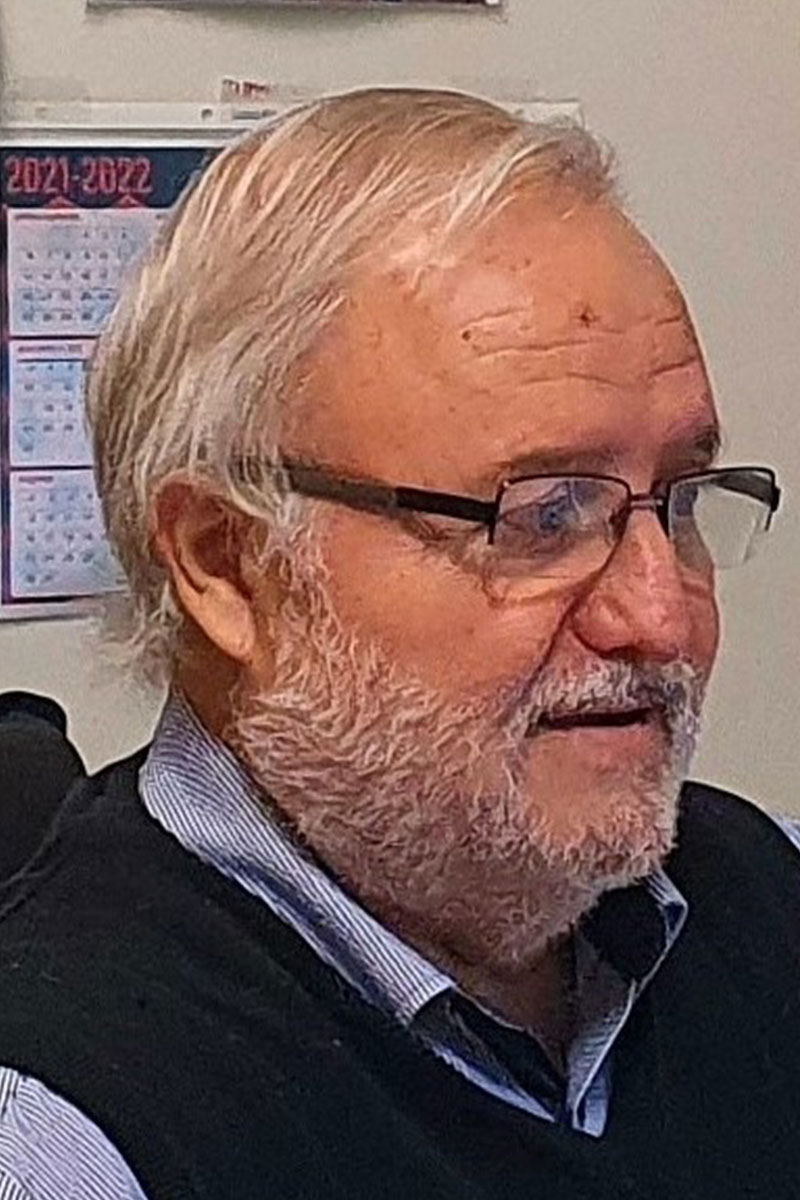 |
Oscar VicenteVICE PRESIDENTOscar Vicente graduated in Biochemistry in 1976 and obtained his PhD in Sciences in 1983 in Madrid (Spain). After a three-year postdoctoral period at the Friedrich-Miescher Institut in Basel (Switzerland), Oscar Vicente moved in 1988 to the Institute of Microbiology and Genetics, University of Vienna (Austria), where he established and led a research group working on different aspects of plant reproductive biology and its biotechnological applications, and on the molecular characterization of pollen allergens and plant MAP kinases. As Assistant Professor from 1991 to 1996, he was responsible for several courses of Experimental Genetics taught at the Faculty of Sciences. Oscar Vicente returned to Spain in 1996 to join the faculty of the Polytechnic University of Valencia, where he is currently a Professor of Biochemistry and Molecular Biology at the Department of Biotechnology, teaching different subjects in this area to students of Biotechnology and Biomedical Engineering. His research interest focuses on studying plant responses to abiotic stress and stress tolerance mechanisms in the context of climate change. Oscar Vicente has published over 170 ISI-indexed scientific papers, most in the category of Plant Science. He is Vice-president and coordinator for Spain of the European Biotechnology Thematic Network Association (EBTNA) and is included in the ‘Top-100’ Spanish scientists in Plant Science and Agronomy (Research.com). In 2017, he was awarded the degree of Doctor Honoris Causa by the University of Agricultural Sciences and Veterinary Medicine, Cluj-Napoca (Romania).
|
|
|
Donald MartinGENERAL SECRETARYProf. Martin received a bachelors degree in optometry, a masters degree in biomedical engineering and a PhD in biomechanics of contact lenses/biophysics of the anterior eye from the University of New South Wales (Australia). He was awarded the inaugural Medical Foundation Post-Doctoral Fellowship (3 years) to complete postdoctoral training in electrophysiology at the University of Sydney. He then continued the first part of his career in Australia, until 2008, with scientific and academic positions at St Vincent’s Hospital Sydney and the University of Technology Sydney. From 2003-2008 he was an executive board member of the Australian French Association for Science and Technology (AFAS NSW). In 2005 he initiated the Australian network in nanobiotechnology called OzNano2Life, which directly funded postdoctoral researchers in several universities and institutions across Australia and provided the portal for exchanging structured scientific information with nanotechnology institutes in Europe. In 2009 he was awarded a French Chaire d’Excellence to establish a research program in nanobiosciences at the Fondation Nanosciences and the Université Grenoble Alpes. In 2013 he was appointed to the continuing position of Professeur des Universités, Université Grenoble Alpes. He also has an honorary position at the University of Melbourne (Australia). He is the co-author on 11 patents, more than 100 publications and is co-founder in 3 Australian startups. His book on nanobiotechnology published by Springer in 2007 was translated to Russian and published in 2012 by Nauchny Mir, Moscow. |
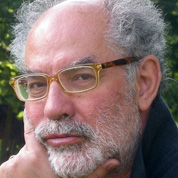 |
Tommaso BeccariTREASURERProfessor Tommaso Beccari has a long experience on lysosomal enzymes that begun in 1985 at the King’s College of London UK in the laboratories of Prof. D. Robinson and Dr. JL Stirling, two pioneers in the field of lysosomes. He has been Visiting Professor at the King’s College, London, UK; Universitè Renè Descartes, Paris, France; Georg-August-Universitat Gottingen, Germany; University of Tromso, Norway. His research has been focused on the biochemistry and molecular biology of lysosomal enzymes and to study the pathophysiology of the lysosomal storage disorders. More recently his laboratory has participated to the development of a therapy for the lysosomal storage disease, alpha-mannosidosis. His laboratory is involved in the diagnosis of alpha-mannosidosis, beta-mannosidosis, mucolipidosis type II and III. Part of his research is oriented to analyses the relationship between lysosomal enzymes and Parkinson’s Disease. More recently two new ko mice for the chitobiose and cytoplasmic alpha-mannosidase have been generated in order to better understand the catabolism of oligosaccharides. Finally, another topic of his research is on the genetic association of Anorexia nervosa and Bulimia Nervosa. Professor Tommaso Beccari is the author of several papers published in leading international journals |
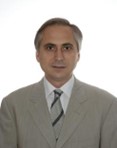 |
Anargyros Moulas, Ph.DMEMBERAnargyros Moulas, Ph.D., is professor and laboratory head at the University of Thessaly, Larissa, Greece, and independent industry consultant. Has coordinated several R&D projects that were funded by private, national and European funds. Has supervised the development, preclinical in vitro and in vivo and clinical testing and regulatory submissions of innovative medical devices and drug-device combination products, including a drug eluting stents and balloons, medical device coatings. Developed innovative foods fortified with vitamin D. Has published several papers on medical devices, fat soluble vitamins and oxidative stress. Holds three international patents. Was visiting professor at the Medical College of Virginia, USA, University of Medicine and Dentistry of NJ, USA and the University of Perugia, Italy. His research interests include medical devices, combination products, controlled release of substances, health aspects and molecular mechanisms of action of fat soluble vitamins, cancer, oxidative stress. |
 |
Martin KollerMEMBERMartin Koller; Dr.; Research Manager and Senior Researcher, Karl-Franzens-Universität Graz, Austria; Office of Research Management and Service, c/o Institute of Chemistry. He is and expert in tne field of materials and polymers, applied mikrobiology, microbiasl biotechnology and environmental biotechnology. |
 |
Ratnesh LalMEMBERProf. Lal received his MS/M Phil in Physics/Biophysics from JNU, India, Ph.D. in Neurobiology from UAB, and postdoctoral training at Caltech. He held faculty positions at the University of Chicago and UCSB and then the Director of the Center of Nanomedicine and professorships in Medicine, Biophysical Sciences and Cell Physiology at the University of Chicago. Currently, he holds joint professorships in Bioengineering, Mechanical Engineering, and Materials Science, and is the co-Director for the Center for Excellence in Nanomedicine and Engineering at UCSD. He is a Fellow of AAAS (the American Association for Advancement of Science) and a Fellow of the American Institute of Medical and Biological Engineering (AIMBE). He was the UTS Invited Professor in Sydney for their Bionanotechnology initiative and a New Zealand Government International Science Scholar. He is a Visiting Professor at the Chinese Academy of Sciences, Institute for Applied Physics, Shanghai. He is an Associate Editor of the Journal Nanomedicine: Nanotechnology, Biology, Medicine. He is the Chairman of American Nanoslutions, LLC, Vessel ANI corp and is on advisory board of RC Nano LLC and Be Green Packaging LLC. He has presented many international keynote lectures and is featured in many popular magazines and news media, including Time and Smithsonian. He holds several patents based upon AFM cantilever arrays, microfluidics, optoelectronics and nanotubes for medical diagnostics, Nano biosensors and in-vivo medical Nano devices, nanoscale fluid behavior and new TIRF, FRET and related optical microscopy |
 |
Robert MarksMEMBERProf. Robert S. Marks is a Full Professor at the Ben-Gurion University of the Negev, Israel, at the Department of Biotechnology Engineering, where he created the interdisciplinary Biosensors Laboratory, and has affiliations there at The National Institute for Biotechnology in the Negev and the Ilse Kats Centre for Nanotechnology. He is presently the Chair of the Department. He was previously Visiting Adjunct Professor in the NTU-MSE, and a program co-founder and coordinator of the multidisciplinary Singapore NRF CREATE program “Nanomaterials for Water and Energy Management” (19 Profs, 31 million USD). Robert has co-founded, and is the originator of the technologies, for the following companies in Israel, Biosensing Technologies Ltd, Biopixel Ltd, Polyrizon Ltd, Neobionics Ltd. The present starups are Life Matters Ltd (Israel), Biosensorix Pte Ltd (Singapore) and Eclipse diagnostics (USA). Prof. Marks has extensive experience in developing new biosensors including chemiluminescent-based optical immunosensors to pathogen-elicited antibodies (Ebola virus, West Nile virus, Rift Valley fever, Dengue, Hepatitis C, Crimean-Congo hemorrhagic Fever), amperometric immunosensors, immunolateral flow immunosensor, capture flow immunoassay, stackpad immunoassay, luminescent primed neutrophil diagnostics, reverse engineered cell cultures glowing in the presence of a specific target virus. His work also includes environmental toxicology, such as monitoring water pollution via fiber-optic probes glowing in the presence of toxicants through their associated luminescent bacteria (water on-line monitoring and air toxicity monitoring). His group participated in developing biochips enzyme nanolithography, nanofluidics, light-sensitive tissue sutures for surgery, and anti-biofilm materials. He has raised over 8 million dollars for his lab (63+ grants) out of over 50 million dollars from total grant budgets in collaborative projects. He is the Editor-in-Chief of a 2007 2-volume Wiley Handbook in Biosensors and Biochips, edited 5 other books, and founded the Pan Stanford book series ‘the high-tech of biotech’. His is the author of 170+ papers, not counting book chapters. He has 8 issued patents, as well as, a dozen filed. He has organized 21 international conferences. He has been a visiting Professor in lengthy stays in France (Grenoble, Troyes, Paris), Italy (Udine), Finland (Turku), Singapore, USA (Baltimore) and China (Chengdu and Nanjing). He has created an extensive network of collaborations worldwide in most continents most reflected in the publications (Africa (Senegal, South Africa, Uganda)); Asia (Vietnam, China, Singapore, Indonesia, South Korea, Japan, Israel); South America (French Guiana); North America (USA, Canada); Europe (France, UK, Italy, Spain, Germany, Finland, Netherlands, Sweden, Russia, Ukraine, Romania, Slovenia, Hungary, Turkey, China). Most of his developed biosensors were published with real life samples. |
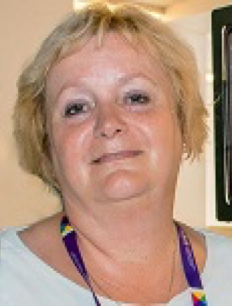 |
Ivana MarovaMEMBERProf. Ivana Marova is a regular professor of biochemistry at Faculty of Chemistry, Brno University of Technology (FCH BUT). At this time she is a Head of Department of Food Chemistry and Biotechnology, FCH BUT. She has been profiled as a specialist in the field of microbial biochemistry and biotechnology, food biochemistry, bioanalysis and utilization/valorization of waste substrates to the production of high value-added products. She has worked as the leader of research groups in the frame of national and international projects from 2002 till present. At this time she is a head of the Biotechnology and Biomaterials group of Materials Research Centre FCH BUT in Brno (established in 2010 as a regional center of excellence); she is a leader of the research group working on the development of patented HYDAL biotechnology awarded by Frost and Sullivan Technology Innovation Award (2015). She was the applicant and co-applicant of many scientific projects (ESF, GACR, TACR, OP VaVpI). She is the author of about 100 original scientific papers, 4 books/chapters, 2 accepted and 4 applied patents, 2 industrial applications and co-author of about 300 contributions on international conferences. She is the supervisor of doctoral students DSP (more than 20 successfully defended Ph.D. theses). She cooperates with many industrial subjects (Nafigate, a.s., Pharmaceutical Biotechnology) and international research groups. The Brno University of Technology (BUT), the second-largest technical university in the Czech Republic, was found in 1899 as the first Czech higher education institution in the Moravia region. At the present time, more than 24,000 students are enrolled at BUT at 8 faculties and 2 university institutes. |
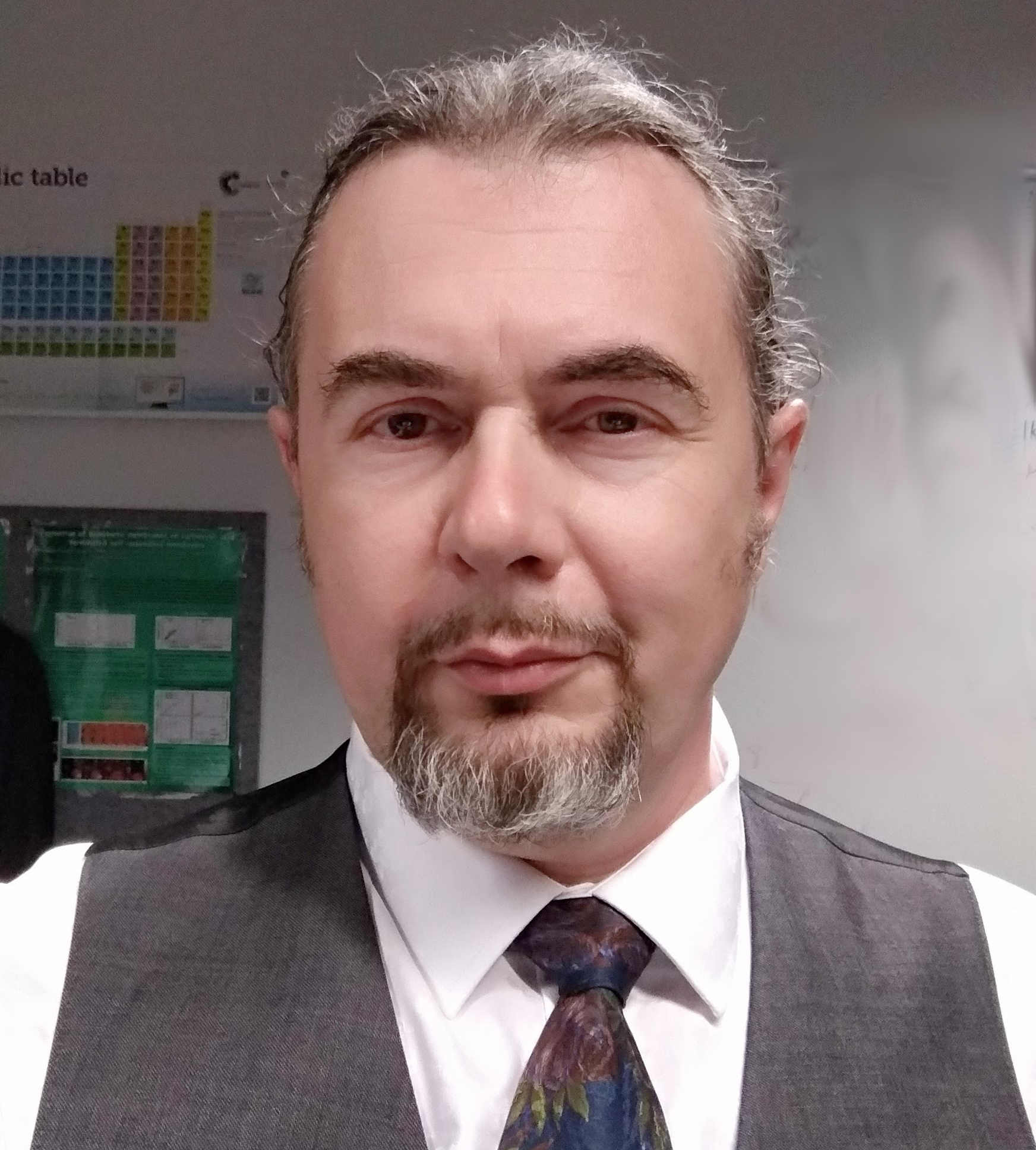 |
Adam MechlerMEMBERDr Mechler completed a BSc/MSc degree in chemistry and physics in 1996, and obtained his PhD in physics/materials science in 2001 at University of Szeged (formerly Attila Jozsef University), Hungary. He received a NATO Science for Peace Advanced Postdoctoral Fellowship to work at the Neuroscience Research Institute of the University of California, Santa Barbara, where he spent three years while his interest shifted to protein function, bioinspired materials and biomolecule interactions. After arriving in Australia in 2004 as the recipient of a Monash Fellowship awarded by Monash University, he established his independent research program on biomolecule self-assembly, focusing on membrane biophysics and peptide-membrane interactions, while maintaining an interest in bioinspired materials and bioactive natural products. He has joined La Trobe University staff in 2009 and has been working there since. Currently he is Associate Professor in Chemistry, also serving as Assistant Dean of Graduate Research Studies. |
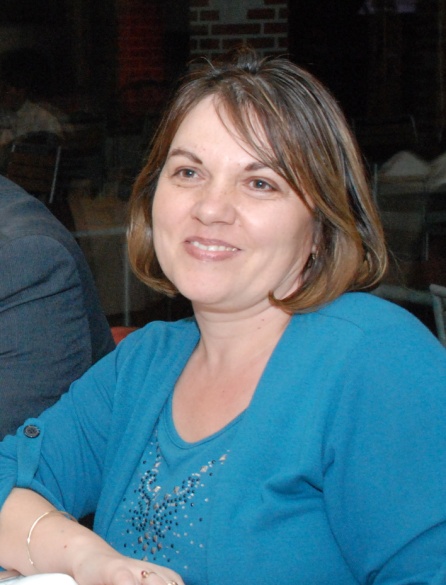 |
Dana TapaloagaMEMBERDr. Dana Tapaloaga is Full Professor at the Faculty of Veterinary Medicine, Bucharest. She took her Ph.D. in Veterinary Medicine in 2004 in the field of Animal Reproduction Biotechnology, and her MSc in 1999 (Reproduction BioTechniques and Biotechnologies) and 1996 (Milk production, processing, and trading). Professional teaching experience area: Milk and meat obtaining technologies, Animal Production Systems, Animal Genetics, Animal breeding. Current Research interests: laboratory and economic efficiency researches on bull, buffalo and boar semen; computerized studies on bull and boar semen; laboratory technologies for reproduction biotechnology in breeds preserving; morphologic and hormonal modifications in cows with puerperal disorders; certification and preserving the genetic potential in Mangalitza breed by biotechnological methods. She was a postdoctoral researcher in the field of animal biodiversity at Postdoctoral School for Animal Sciences Biodiversity and Food Sciences Biotechnologies based upon eco economy and bio-economy required to eco san genesis at Romanian Academy, member of Romanian Animal Science Association, member of World Poultry Science Association, member of DAGENE (International Association for the Conservation of Animal Breeds in the Danube Region), member of the Academy of Romanian Scientists, the Committee of National Food Security. |
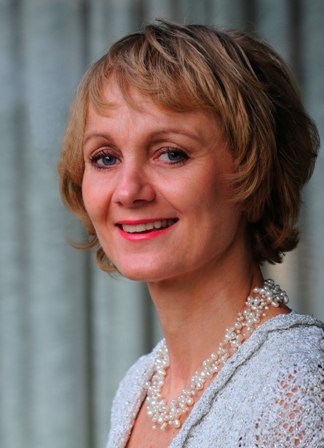 |
Polona-Znidarsic-PlazlMEMBERPolona Znidaršic Plazl is professor of biotechnology at University of Ljubljana. She graduated in chemical engineering, finished her MSc in biochemistry and obtained her PhD in 2000 at the University of Ljubljana. Beside short-term scientific work at Johns Hopkins University, Graz Technical University and Bayer Research Center in Leverkusen, she performed a research with Professor Goran N. Jovanovic at Oregon State University for altogether one year in 2003/04 and in 2014/15, in the latter case as a Fulbright scholar. Her major recent research interests are biotransformations and separations in microscale systems. She has published over 40 scientific papers and 2 book chapters and was leading 2 EU projects and several bilateral cooperations at University of Ljubljana considering development of enzymatic microreactors. She is a Co-Chair of the series of international conferences Implementation of Microreactor Technology in Biotechnology – IMTB, and a member of the Scientific Committee of the EFB Section on Applied Biocatalysis, of the Management Committee of the COST Action Systems Biocatalysis and of the Editorial Board of the journal Chemical and Biochemical Engineering Quarterly. |
 |
Michel SalzetMEMBER |
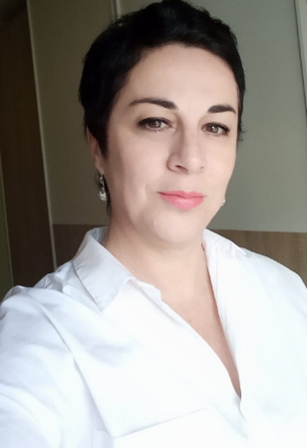 |
Ariola BacuMEMBERProf. Dr. Ariola Bacu holds a PhD in plant molecular biology-biotechnology, and is working as full professor at the Department of Biotechnology of the University of Tirana, Albania since 2008. Earlier she worked for the Academy of Sciences of Albania (2000-2008) as a researcher, and in both institutions established laboratories for molecular biology-biotechnology. She lead the Department of Biotechnology at the Faculty of Natural Sciences of the University of Tirana during 2008-2016, time during which BSc, MSc, MP and PhD study programs in Biotechnology were established. She is also affiliated to the Unit for Biotechnology & Genetics of the Academy of Sciences of Albania, and serves as the National Coordinator and Executive Committee Member for European Biotech Thematic Network Association (EBTNA). |
 |
Kisung KoMEMBER |
 |
Matteo BartelliMEMBER |